YiQing Cai
Advancing Fine-Grained Visual Understanding with Multi-Scale Alignment in Multi-Modal Models
Nov 14, 2024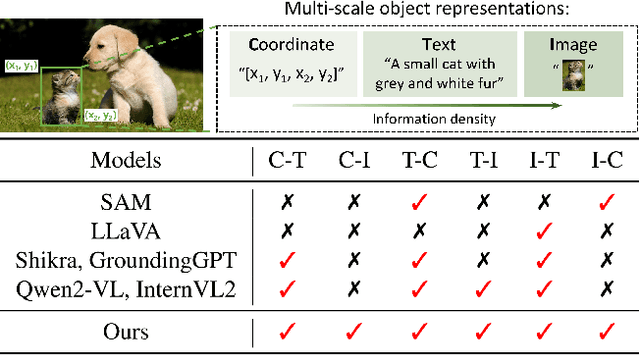
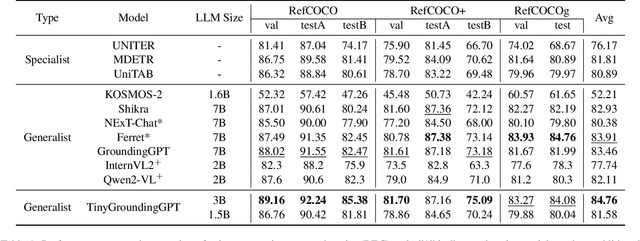
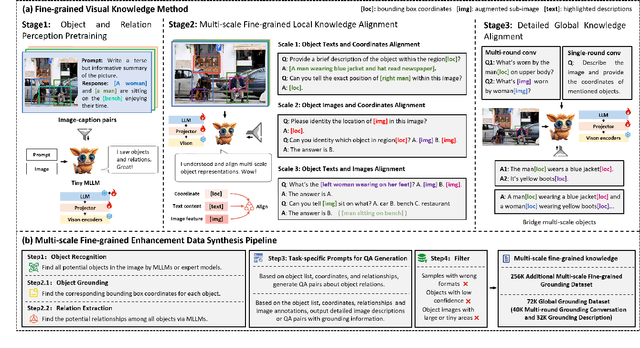
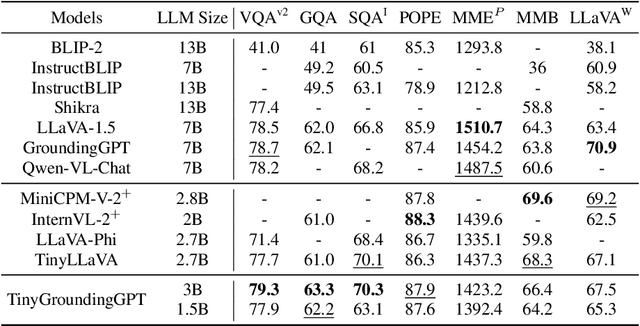
Abstract:Multi-modal large language models (MLLMs) have achieved remarkable success in fine-grained visual understanding across a range of tasks. However, they often encounter significant challenges due to inadequate alignment for fine-grained knowledge, which restricts their ability to accurately capture local details and attain a comprehensive global perception. While recent advancements have focused on aligning object expressions with grounding information, they typically lack explicit integration of object images, which contain affluent information beyond mere texts or coordinates. To bridge this gap, we introduce a novel fine-grained visual knowledge alignment method that effectively aligns and integrates multi-scale knowledge of objects, including texts, coordinates, and images. This innovative method is underpinned by our multi-scale fine-grained enhancement data synthesis pipeline, which provides over 300K essential training data to enhance alignment and improve overall performance. Furthermore, we present TinyGroundingGPT, a series of compact models optimized for high-level alignments. With a scale of approximately 3B parameters, TinyGroundingGPT achieves outstanding results in grounding tasks while delivering performance comparable to larger MLLMs in complex visual scenarios.
UnifiedMLLM: Enabling Unified Representation for Multi-modal Multi-tasks With Large Language Model
Aug 05, 2024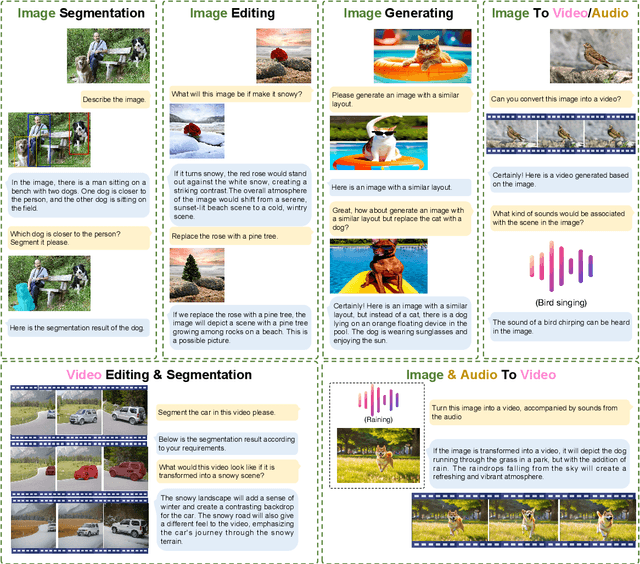

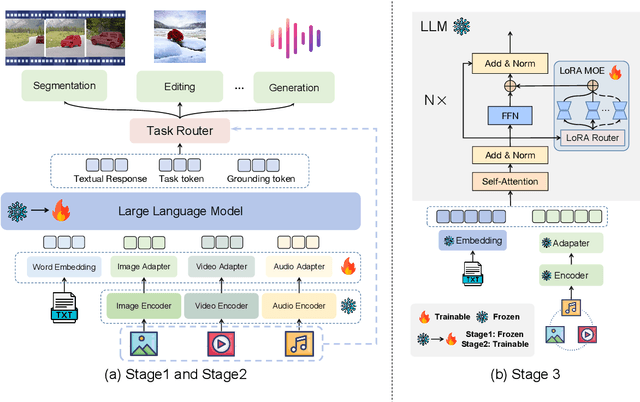

Abstract:Significant advancements has recently been achieved in the field of multi-modal large language models (MLLMs), demonstrating their remarkable capabilities in understanding and reasoning across diverse tasks. However, these models are often trained for specific tasks and rely on task-specific input-output formats, limiting their applicability to a broader range of tasks. This raises a fundamental question: Can we develop a unified approach to represent and handle different multi-modal tasks to maximize the generalizability of MLLMs? In this paper, we propose UnifiedMLLM, a comprehensive model designed to represent various tasks using a unified representation. Our model exhibits strong capabilities in comprehending the implicit intent of user instructions and preforming reasoning. In addition to generating textual responses, our model also outputs task tokens and grounding tokens, serving as indicators of task types and task granularity. These outputs are subsequently routed through the task router and directed to specific expert models for task completion. To train our model, we construct a task-specific dataset and an 100k multi-task dataset encompassing complex scenarios. Employing a three-stage training strategy, we equip our model with robust reasoning and task processing capabilities while preserving its generalization capacity and knowledge reservoir. Extensive experiments showcase the impressive performance of our unified representation approach across various tasks, surpassing existing methodologies. Furthermore, our approach exhibits exceptional scalability and generality. Our code, model, and dataset will be available at \url{https://github.com/lzw-lzw/UnifiedMLLM}.
 Add to Chrome
Add to Chrome Add to Firefox
Add to Firefox Add to Edge
Add to Edge